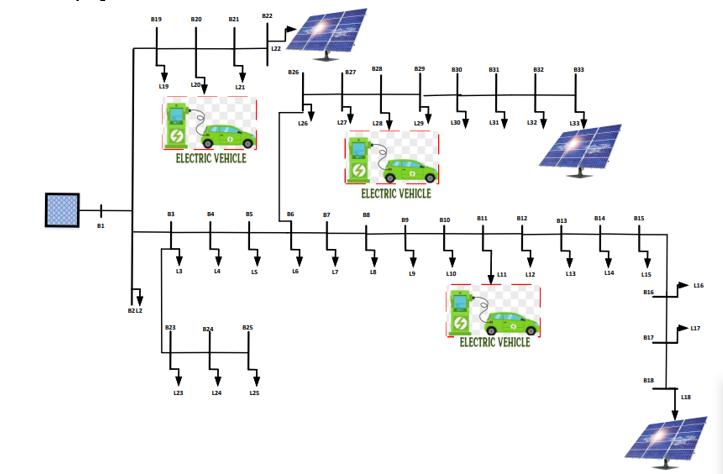Evaluating the Influence of EV Charging Patterns on Power Quality Metrics in Modern Electrical Grid
Keywords:
Electric Vehicle (EV) Charging, Grid Stability, Photovoltaic (PV) Systems, Battery Management System (BMS), Power Quality MetricsAbstract
This paper indicates a comprehensive evaluation of the impact of electric vehicle (EV) charging on power quality parameters within contemporary electrical distribution networks, with a particular focus on transient behaviors and system stability under varying levels of EV penetration. Leveraging the IEEE 33-bus radial distribution system as a benchmark model, the study employs time-domain ETAP simulations to analyze load flow dynamics, voltage profile variations, and power loss distributions. A comparative investigation is conducted between scenarios with and without the integration of photovoltaic (PV) systems, further augmented by the implementation of Battery Management Systems (BMS) to enable dynamic load control and grid support. The simulation results reveal that the coordinated integration of PV and BMS significantly mitigates voltage deviations, reduces system losses, and enhances grid stability, particularly during peak demand periods. These findings underscore the pivotal role of distributed energy resources (DERs) and advanced energy management strategies in facilitating a resilient and sustainable EV charging infrastructure, which is indispensable for accommodating the anticipated growth in EV adoption.





